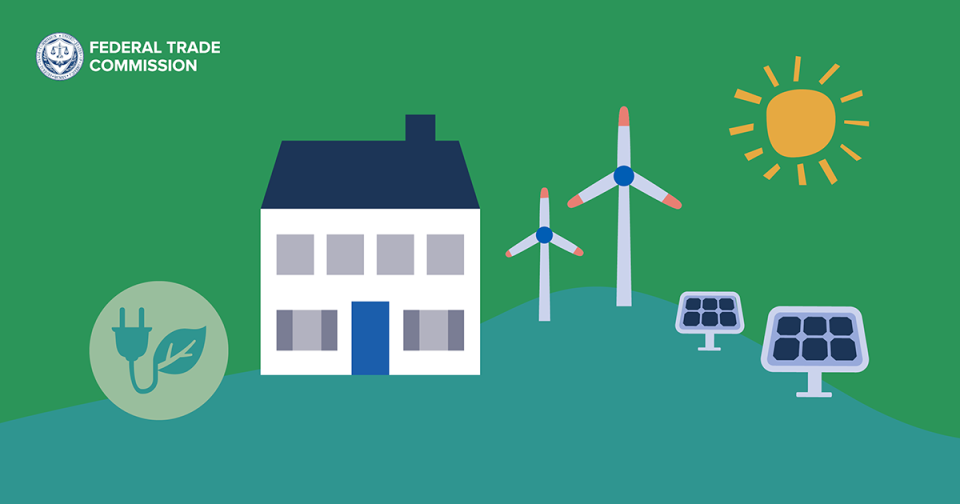Did a salesperson knock on your door and promise free rooftop solar panels at no cost to you? Or say you’ll never have to pay another electricity bill because government programs, grants, or rebates cover your solar installation? It’s likely a scam. While there are some government-funded solar programs for households that qualify, “going solar” isn’t free. Honest businesses will tell you exactly how much it’ll cost to get and install solar panels. Here’s how to steer clear of the scams:
Do some research. Avoid solar companies that say a government program will cover the whole cost of solar panels — or say they’re from (or affiliated with) the government. These are lies. If you’re looking at solar energy for your home, get quotes from reputable providers with a valid license. Then compare them. Check out the Department of Energy’s guide for homeowners and commonly asked questions to learn more.
Don’t pay advance fees. Steer clear of anyone promising big savings and demanding large upfront payments or deposits. To get you to pay, scammers promise you big savings if you act fast — but they’ll vanish with no intention of ever doing or finishing the work. Legitimate providers will work with you to figure out whether solar energy is right for you. Check out the Department of Treasury’s guidance on clean energy.
Take your time. If someone is rushing you to sign a contract, or insists you sign an agreement on an electronic tablet without showing you the full agreement, stop. That’s something scammers do. Take the time to read and understand the agreement with the provider. Pay attention to warranties, cancellation policies, payment schedules, and try to spot any hidden fees. Honest businesses will give you time to go over the terms of the contract, understand the agreement, and let you sign it in writing.
To learn more, visit ftc.gov/solar. And if you spot a scam, tell the FTC.





